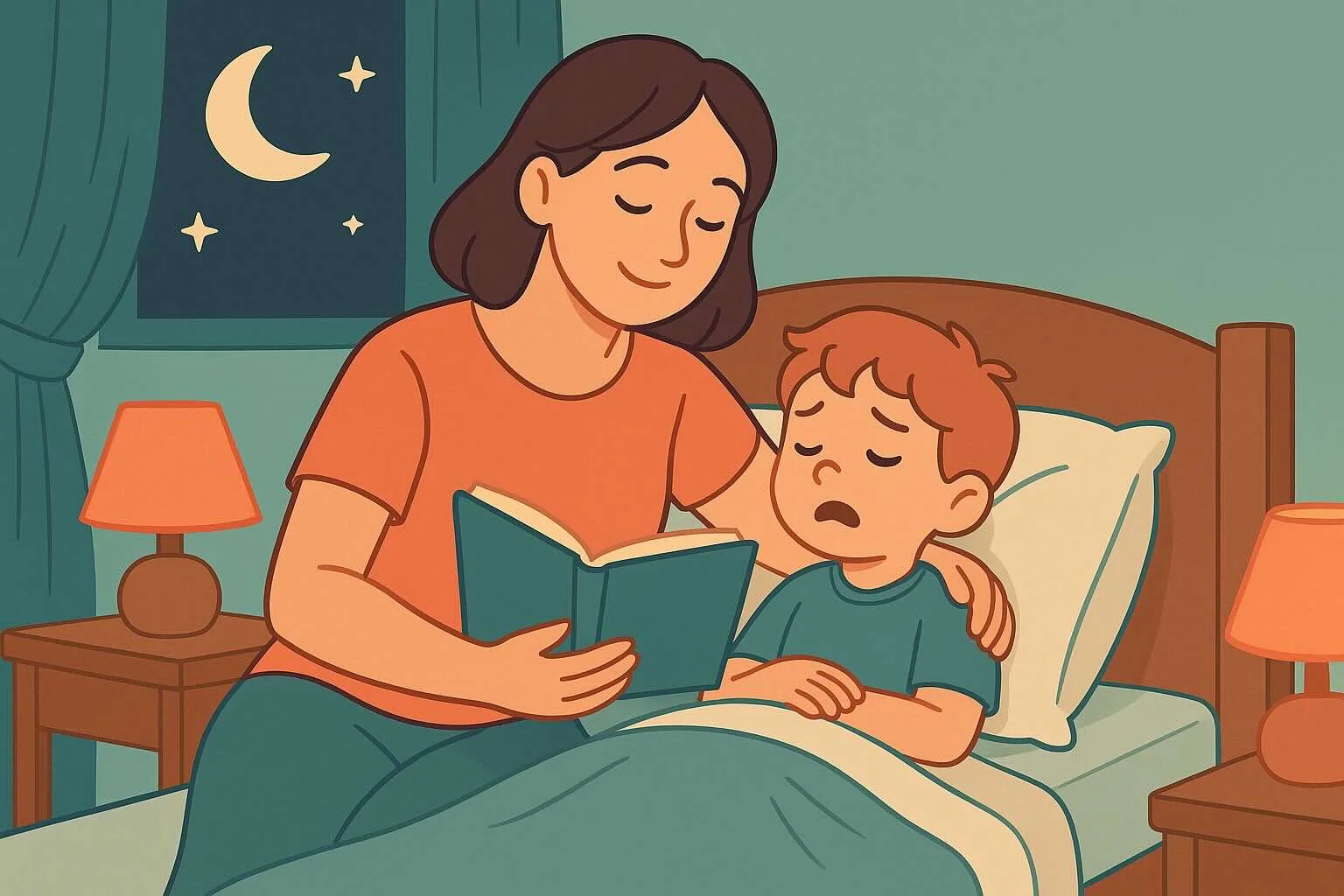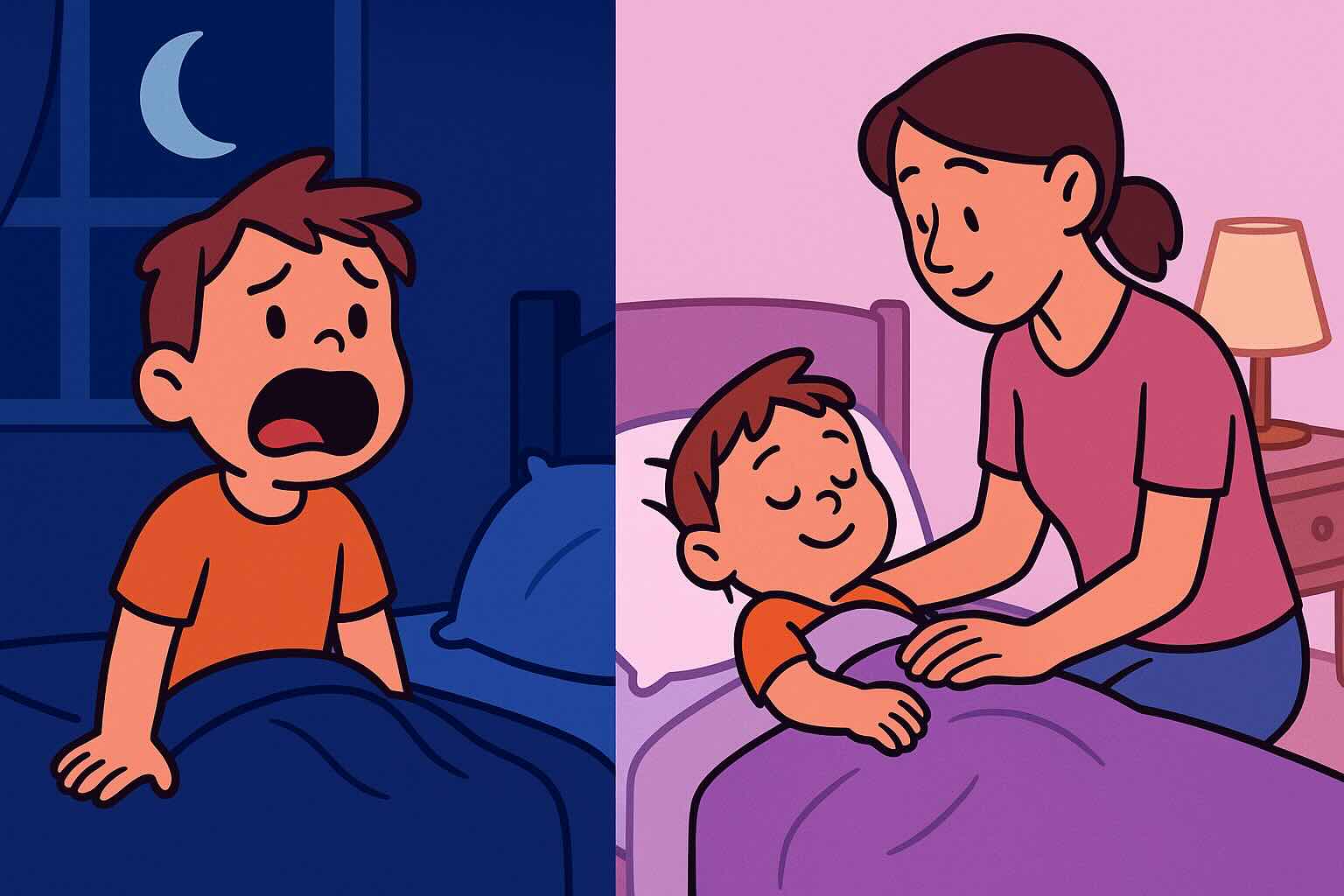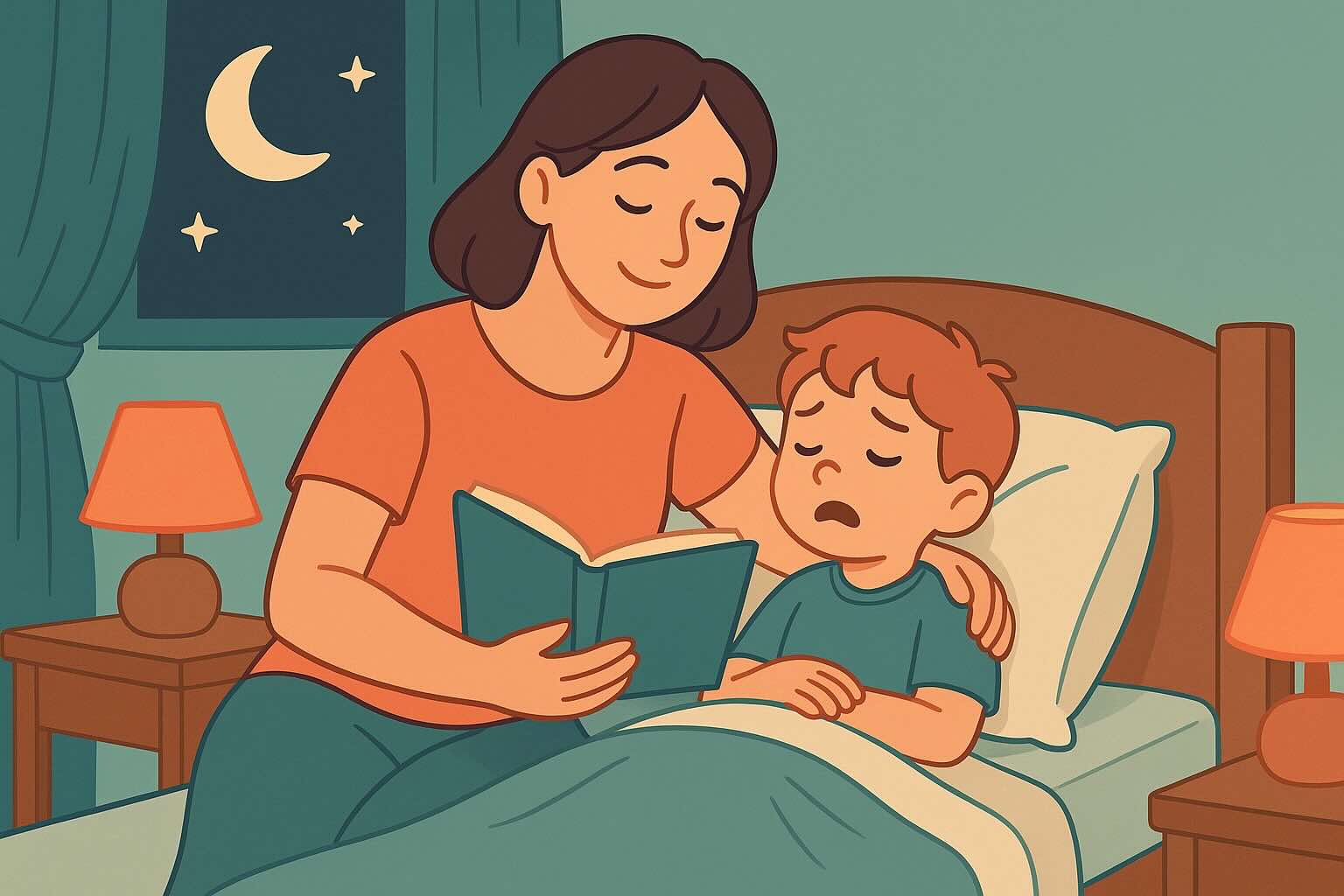7 Year Old Bedtime Routine: Independence Strategies

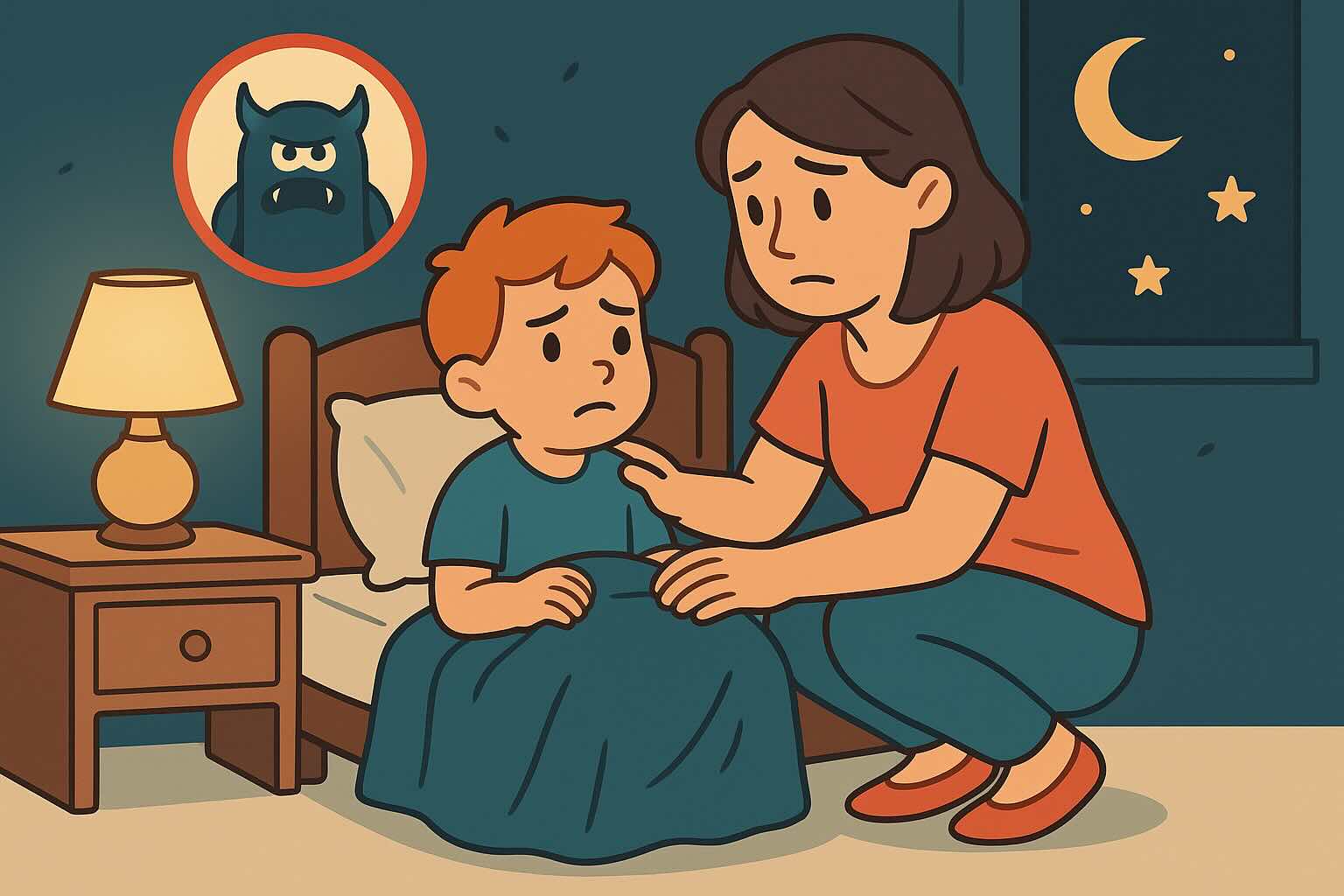
Your 7-year-old is entering a fascinating phase of development—they're becoming genuinely independent, developing their own interests and opinions, and capable of handling complex responsibilities. This growing maturity brings exciting opportunities for bedtime routines that are largely self-directed while still maintaining the sleep quality essential for their academic and personal success.
If you're finding yourself caught between wanting to support their independence and ensuring they get adequate sleep, or if bedtime negotiations have become more sophisticated as your child learns to present compelling arguments for staying up later, you're navigating one of the most rewarding yet challenging transitions in childhood sleep management.
Research shows that 91% of parents struggle to balance growing independence with sleep needs for 7-year-olds, yet this is precisely the age when children can take full ownership of their bedtime routines while still benefiting from family connection and structure.
The empowering news is that 7-year-olds are developmentally ready for highly independent, efficient bedtime routines that can actually reduce your evening workload while ensuring they get the quality sleep they need to excel academically, socially, and emotionally.
This comprehensive guide will help you create a bedtime routine that honors your 7-year-old's growing independence, supports their academic success, and maintains family connection using our proven 3-step sleep method, specifically adapted for the unique capabilities and challenges of second-grade children.
Understanding Your 7-Year-Old's Sleep and Developmental Needs
Sleep Requirements for Optimal Development
Seven-year-olds need 9-11 hours of quality sleep per night for optimal cognitive function, emotional regulation, and physical growth. For second-grade children, this typically means:
- Bedtime: 8:00-9:00 PM (depending on wake-up requirements)
- Wake time: 6:30-7:30 AM (school schedule dependent)
- Total nighttime sleep: 9-11 hours
- Consistency: Same sleep schedule year-round, including weekends
At age 7, sleep quality becomes even more important than quantity as their brains process increasingly complex information and social experiences.
How Sleep Powers Second-Grade Success
Quality sleep isn't just about rest for 7-year-olds—it's the foundation for everything they're learning and becoming. Well-rested second-graders demonstrate:
Advanced Learning Capacity: Sleep consolidates new academic skills like multiplication, reading comprehension, and complex problem-solving. The information they learn during the day is literally wired into their brains during sleep.
Enhanced Executive Function: Well-rested 7-year-olds show superior planning, organization, time management, and self-control—skills crucial for increasing academic independence.
Improved Social Navigation: Sleep supports the emotional regulation needed to handle more complex peer relationships, classroom dynamics, and conflict resolution.
Better Physical Coordination: Continued development of fine motor skills for handwriting and gross motor skills for sports and playground activities.
Stronger Resilience: Adequate sleep helps children bounce back from academic challenges, social disappointments, and daily stresses more effectively.
Developmental Characteristics of 7-Year-Olds
Understanding your 7-year-old's remarkable development helps you create appropriate bedtime expectations:
Advanced Independence: They can handle complex multi-step routines completely independently and take pride in their growing capabilities.
Logical Thinking: Seven-year-olds can understand cause-and-effect relationships and connect their sleep choices to their daily performance.
Social Sophistication: They're highly aware of peer behaviors and may use sophisticated reasoning to negotiate bedtime rules.
Academic Identity: They have a strong sense of themselves as students and can connect sleep habits to academic success.
Time Management Skills: They can understand time concepts, use clocks, and manage their routines within time constraints.
Reading Fluency: Most are becoming confident independent readers, which changes bedtime routine dynamics significantly.
Emotional Complexity: They experience and can articulate complex emotions about school, friendships, and growing up.
The 3-Step Sleep Method for 7-Year-Olds
Our evidence-based approach is particularly powerful with 7-year-olds because they can fully understand the reasoning behind routines, take pride in independence, and make connections between their choices and outcomes.
Step 1: Create Your Story
Your bedtime "story" for a 7-year-old should emphasize their full capability while maintaining family values around sleep. Include:
The Advanced Independence Bedtime Sequence:
- Homework and activities completed well before bedtime
- Brief transition announcement (5-minute warning)
- Completely independent hygiene and self-care routine
- Independent pajama selection and dressing
- Tomorrow preparation (clothes, backpack, special items)
- Independent reading time or brief family connection time (their choice)
- Completely independent settling and falling asleep
Your Response Plan for Advanced 7-Year-Old Scenarios:
- How you'll handle sophisticated bedtime negotiations
- Your approach to social drama or academic stress at bedtime
- How you'll respond to requests for later bedtimes like peers
- Your method for handling Sunday night school anxiety
- Your plan for maintaining routines during busy periods or special circumstances
Sample Story for 7-Year-Old: "At 8:15 PM, I'll give a 5-minute warning that bedtime routine begins at 8:20. They'll go independently to their room and complete their entire routine: hygiene (face, teeth, bathroom), pajamas, and tomorrow preparation (clothes laid out, backpack checked, special items ready). They'll then have 10 minutes of quiet time—they can choose independent reading, quiet reflection, or brief connection time with me. By 8:45 PM, they'll be settled in bed and falling asleep independently. If they attempt bedtime negotiations, I'll say: 'You're presenting interesting points AND our family values sleep for your success and health. I believe in your ability to handle bedtime independently. Sleep well!' If they need me after bedtime, I'll provide brief, calm assistance but won't restart routines or engage in lengthy conversations."
Step 2: Share Your Story
Seven-year-olds appreciate being treated as mature partners and can handle sophisticated explanations about family decisions and expectations.
How to Share with a 7-Year-Old:
"Now that you're in second grade, you're ready for a bedtime routine that shows how independent, responsible, and mature you've become. I want to explain why our family prioritizes sleep and how you can take complete ownership of your bedtime routine."
Connect Sleep to Their Growing Identity:
- "Successful students understand that sleep is as important as studying for doing well in school"
- "Independent kids take responsibility for taking care of their bodies and minds"
- "Athletes, artists, and leaders all prioritize sleep because they know it helps them perform their best"
- "When you manage your bedtime routine independently, it shows how mature and capable you're becoming"
Explain the Science:
- "During sleep, your brain organizes everything you learned today and prepares for tomorrow"
- "Sleep helps your body grow stronger and your immune system fight off illness"
- "Well-rested people make better decisions, solve problems more easily, and get along better with others"
Get Their Partnership:
- "What ideas do you have for making your bedtime routine work smoothly?"
- "How can we set up your room so you have everything you need to be completely independent?"
- "What would help you feel confident about managing your entire routine on your own?"
Step 3: Follow Through
With 7-year-olds, follow-through should emphasize their maturity and decision-making capabilities while maintaining loving but firm boundaries.
Follow-Through Strategies:
For Advanced Negotiations:
- Acknowledge their reasoning skills: "You're presenting thoughtful arguments"
- Connect to their identity: "AND independent kids understand that some family rules aren't negotiable because they're based on what's best for your health and success"
- Express confidence: "I trust you to handle this responsibility maturely"
For Peer Pressure Arguments:
- Validate their social awareness: "You're noticing that different families have different rules"
- Explain values: "Our family makes decisions based on what helps you be your healthiest, happiest, most successful self"
- Connect to their goals: "You want to do well in school, sports, and friendships—sleep is what makes all of that possible"
For Complex Emotional Issues:
- Set loving boundaries: "I can see you have important things on your mind. I want to give them the attention they deserve when I can focus completely. Let's talk tomorrow after school."
- Redirect to sleep benefits: "Right now, sleep helps your brain process today's experiences and prepare for tomorrow"
- Express confidence: "You're capable of managing your feelings and getting the rest you need"
Advanced Independence Bedtime Routine for 7-Year-Olds
Here's a detailed routine designed for maximum independence while maintaining family connection:
8:15 PM - Brief Transition Notice
"Bedtime routine begins in 5 minutes. Please finish what you're doing."
Seven-year-olds need minimal transition time and can take responsibility for wrapping up activities efficiently.
8:20 PM - Complete Independent Routine (15 minutes)
They handle everything without supervision or reminders:
Hygiene Routine (7 minutes):
- Thorough face and hands washing
- Complete tooth brushing and flossing
- Final bathroom visit
- Any personal care they prefer (hair brushing, etc.)
Getting Ready (5 minutes):
- Choose and put on comfortable pajamas
- Lay out complete school outfit for tomorrow
- Pack backpack with all necessary items
- Set out special items needed for next day
Room Preparation (3 minutes):
- Arrange their bed comfortably
- Set up anything needed for tomorrow morning
- Ensure room is organized and peaceful
8:35 PM - Independent Quiet Time (10 minutes)
Their Choice: They decide how to spend this time:
- Independent reading: Books they choose and enjoy
- Quiet reflection: Thinking about the day or tomorrow
- Brief connection time: 5 minutes with parent if desired
- Relaxation activities: Deep breathing, gentle stretching, or gratitude practice
This choice honors their growing autonomy while ensuring they have options that support relaxation.
8:45 PM - Independent Bedtime
- They get in bed and arrange their comfort items as they prefer
- Turn off their reading light
- Settle independently without parent involvement
- Fall asleep on their own using self-soothing skills they've developed
Parent Role: Available if genuinely needed but not involved in routine supervision or settling process.
Mastering the Balance: Independence and Connection
Maintaining Connection While Building Independence
Quality Over Quantity: Brief, focused connection time is more valuable than lengthy routines that create dependence.
Their Choice Matters: Let them decide whether they want connection time or prefer complete independence on any given night.
Connection During the Day: Strong bedtime independence is easier when children feel connected to parents throughout the day.
Respect Their Growing Autonomy: Some 7-year-olds prefer minimal parent involvement at bedtime, and that's healthy development.
When They Still Want Parent Involvement
Brief Check-ins: If they request connection time, keep it focused and brief (5 minutes maximum).
Quality Conversation:
- "What was the best part of your day?"
- "What are you most looking forward to tomorrow?"
- "What made you feel proud of yourself today?"
Avoid: Problem-solving sessions, lengthy emotional processing, or restarting routine elements they can handle independently.
Managing Complex School and Social Demands
Advanced Homework Management
Non-Negotiable Rule: Homework completion happens well before bedtime routine begins.
Time Management Skills:
- Help them learn to estimate homework time
- Create after-school schedules that ensure homework completion
- Teach them to communicate with teachers if assignments are consistently too lengthy
When Homework Runs Late:
- Maintain bedtime routine timing
- May need to communicate with teacher about workload
- Never sacrifice sleep for homework completion—address time management the next day
Handling Social Complexity
Friend Drama and Social Issues: "I can see you have important social concerns. These deserve my full attention when I can really listen and help you think through solutions. Let's schedule time tomorrow after school to talk about this thoroughly."
Peer Pressure About Bedtimes: "You're noticing that some friends have different bedtimes. Every family makes different choices. Our family chooses to prioritize sleep because we know how much it helps you be successful, healthy, and happy. Some families might make different choices for their own reasons."
Social Anxiety: Brief validation and redirection: "You have worried feelings about social situations. Tomorrow we can talk about strategies for handling challenging social moments. Right now, good sleep helps you think clearly and handle social situations with confidence."
Academic Stress Management
Performance Anxiety: "You want to do well in school, and that shows how much you care about learning. You're prepared, you work hard, and tomorrow you and your teacher will handle whatever comes up. Sleep helps your brain work its best."
Test Worry: "Worried feelings about tests are normal and show you care about doing well. You've studied, and now sleep is the best thing you can do to help your brain remember what you've learned."
Sunday Night School Stress: Maintain exactly the same bedtime routine while providing brief reassurance: "You have some worried feelings about the school week starting. You're prepared, you're capable, and you have people who support you. Sleep helps brave feelings grow stronger."
Advanced Problem-Solving for 7-Year-Old Challenges
Challenge 1: "I'm Too Old for Bedtime Rules"
Why It Happens: Seven-year-olds are developing a strong sense of autonomy and may view bedtime rules as childish restrictions.
Solution: Reframe bedtime as a mature choice rather than a rule imposed upon them.
Script: "You're absolutely right that you're getting more mature and independent. That's exactly why you can understand that taking care of your body and brain by getting good sleep is what mature, successful people do. Professional athletes, successful business people, and top students all prioritize sleep because they know it's what helps them perform their best."
Challenge 2: Sophisticated Stalling and Negotiation
Why It Happens: Seven-year-olds have developed advanced reasoning skills and may present compelling arguments for staying up later.
Common Advanced Stalling:
- Logical arguments about why they need less sleep than other kids
- Negotiations about weekend vs. weeknight bedtimes
- Requests to finish "important" projects or activities
- Claims that they'll be more tired if they go to bed "too early"
Solution: Acknowledge their reasoning while maintaining boundaries.
Script: "You're presenting really thoughtful arguments, and I can see you've been thinking about this carefully. That shows how smart and logical you're becoming. AND some family decisions aren't open for negotiation because they're based on what keeps you healthy and helps you succeed. Sleep is one of those non-negotiable priorities in our family."
Challenge 3: "All My Friends Stay Up Later"
Why It Happens: Seven-year-olds are highly aware of social norms and may feel their bedtime is unfairly early compared to peers.
Solution: Validate their social awareness while explaining family values.
Script: "You're very observant about what your friends do, and you're right that different families have different bedtime rules. Some families might choose later bedtimes for their own reasons. Our family chooses earlier bedtimes because we've learned how much sleep helps you be the amazing student, friend, and person you are. We make decisions based on what's best for you, not what other families choose."
Challenge 4: Sunday Night Anxiety and School Stress
Why It Happens: As academic and social demands increase, some 7-year-olds develop anticipatory anxiety about the school week.
Solution: Acknowledge feelings while maintaining routine consistency.
Script: "Sunday nights can bring up worried feelings about the week ahead, and that's completely normal. You care about doing well, which is wonderful. You're prepared, you're capable, and you have teachers and family who support you. Right now, good sleep is the best gift you can give yourself to handle whatever the week brings."
Creating the Ultimate Independent Sleep Environment
Room Setup for Complete Self-Sufficiency
Accessibility: Everything they need should be within easy reach:
- Pajamas organized in accessible drawers
- Tomorrow's clothes area clearly designated
- Books they can choose from independently
- Personal care items at appropriate height
- Comfortable reading area with good lighting
Independence Support:
- Clock they can read for time management
- Nightlight if needed for safe navigation
- Comfortable temperature control they can manage
- Everything needed for morning routine accessible
Personal Ownership: Let them help design and organize their space to build investment in maintaining it.
Technology and Digital Wellness
Clear Digital Boundaries:
- All screens off 1 hour before bedtime (no exceptions)
- Charging station outside bedroom
- No television or video games in bedroom
- Use analog clocks rather than phone alarms
Educational Technology:
- Audio books or calming music with automatic shut-off timers
- White noise machines if helpful for concentration
- Learning tools that don't emit blue light
Advanced Comfort and Security
Age-Appropriate Comfort:
- Transitional objects (stuffed animals, special blankets) still okay if comforting
- Personal space that reflects their growing interests and identity
- Privacy and respect for their need for alone time
Safety and Security:
- Room layout that supports safe, independent movement
- Clear emergency procedures they understand
- Confidence in their ability to handle minor nighttime needs independently
Sample Scripts for Advanced 7-Year-Old Scenarios
When They Present Logical Arguments Against Their Bedtime
Child: "But I read that some kids my age only need 8 hours of sleep, and if I go to bed at 9:00 and wake up at 6:30, that's 9.5 hours, so I'm getting extra!"
Instead of: Getting into a scientific debate or dismissing their research
Try: "Wow, you've been doing research about sleep! That shows how much you're growing intellectually. You're right that different kids need different amounts of sleep, AND what I've observed is that you do your best when you get about 10 hours. Our bedtime isn't just about the minimum you need—it's about helping you be absolutely your best self."
When They Want to Negotiate Weekend Bedtimes
Child: "Can I please stay up until 9:30 on weekends? I don't have school the next day, and all my friends get to stay up later on weekends."
Instead of: Immediately saying no or giving in
Try: "You're thinking logically about how weekends are different from school nights. Let's try staying up 30 minutes later on Friday and Saturday nights and see how you feel on Saturday and Sunday. We can adjust based on how well that works for you."
When They Report Complex Social Drama at Bedtime
Child: "Mom, I really need to tell you about what Sarah said to Emma at lunch today, and then Emma told me something about what Jake said, and I'm worried about what's going to happen tomorrow..."
Instead of: Getting drawn into immediate problem-solving
Try: "It sounds like there were some complicated social situations today, and I can see you're thinking about them. Social relationships are really important, and these situations deserve my full attention when I can help you think through them carefully. Let's plan to talk about this right after school tomorrow when I can really listen and help you figure out how to handle it."
When They Claim They Can't Fall Asleep
Child: "I've been lying in bed for like half an hour and I'm not even close to falling asleep! Can I just read for a while longer?"
Instead of: Giving in to extended activity or getting frustrated
Try: "Sometimes falling asleep takes a while, and that's completely normal. Your body might need some time to wind down from your busy day. Instead of reading more, try some of the relaxation techniques we've practiced—deep breathing, thinking about your favorite peaceful place, or just resting quietly. Your job is to rest your body and mind, and sleep will come when it's ready."
Supporting Morning Success Through Evening Excellence
The Strategic Evening Setup
Complete Tomorrow Preparation:
- Full outfit including socks, underwear, and accessories
- Backpack packed with all assignments, library books, and special items
- Lunch preparations completed (if they pack lunch)
- Any special equipment for activities or projects ready
Morning Independence: Because evening preparation was thorough, mornings become largely self-directed, building confidence and reducing family stress.
Wake-Up Environment for Success
Natural Rhythm Support:
- Blackout curtains for quality sleep
- Sunrise alarm clock or automatic curtain opening
- Consistent wake time that supports natural circadian rhythms
Independence Building:
- Everything they need for morning routine accessible
- Simple breakfast options they can prepare independently
- Clear morning timeline they can manage themselves
Tracking Advanced Independence and Success
Key Indicators to Monitor
Independence Mastery:
- Completes entire routine without reminders or supervision
- Handles routine variations (busy nights, special circumstances) adaptively
- Takes problem-solving initiative when minor issues arise
- Expresses pride in their growing responsibility
Sleep Quality Indicators:
- Falls asleep within 15-20 minutes of lights out
- Sleeps through night without disturbances
- Wakes up alert and positive
- Maintains steady energy and mood throughout day
Academic and Social Success Connections:
- Teacher feedback about attention, participation, and behavior
- Their own reports of feeling alert and focused during school
- Positive peer interactions and conflict resolution skills
- Ability to handle academic challenges and setbacks resiliently
When to Make Adjustments
Bedtime Timing Adjustments:
- Earlier: If morning wake-ups are difficult, afternoon fatigue occurs, or teacher reports attention issues
- Later: If they consistently lie awake for 30+ minutes or wake very early unable to return to sleep
Routine Modifications:
- Seasonal adjustments for daylight saving time and schedule changes
- Temporary modifications during illness, family stress, or major transitions
- Gradual adjustments for growing independence (moving from 10 minutes connection time to 5 minutes, etc.)
Environmental Updates:
- Room modifications as their interests and needs change
- Technology boundary adjustments as they demonstrate maturity
- Comfort item transitions as they outgrow certain needs
Building Lifelong Success Habits
Foundation Skills for Adolescence and Beyond
The habits your 7-year-old develops now create the foundation for lifelong success:
Self-Management: Complete ownership of personal care, time management, and preparation Health Awareness: Understanding the connection between sleep and performance in all areas of life Responsibility: Taking full accountability for their choices and their consequences Independence: Confidence in their ability to meet their own needs and handle challenges
Family Culture of Excellence
Modeling Wellness: Demonstrate that the whole family values sleep as a cornerstone of health and success Celebrating Growth: "Look how responsibly you're managing your bedtime routine! It shows how mature you're becoming." Long-term Vision: "These excellent sleep habits will help you succeed in middle school, high school, and beyond."
Preparing for Future Challenges
Middle School Readiness: The independence and responsibility they're building prepares them for increased academic and social demands
Peer Pressure Resistance: Strong internal values about health and success help them make good choices when external pressures increase
Academic Excellence: Quality sleep habits become even more crucial as learning becomes more complex and competitive
Related Resources for Continued Excellence
For additional support with your 7-year-old's development and continued success, explore these related guides:
- 6 Year Old Bedtime Routine Guide - Transitioning from early elementary to advanced independence
- Healthy Sleep Habits Guide - Building lifelong sleep excellence
- Building Cooperation Without Rewards - Intrinsic motivation for advanced independence
- Setting Boundaries Without Punishment - Positive discipline for mature children
- Connection Before Correction Guide - Maintaining relationships while building independence
- Managing Power Struggles - Cooperative approaches for strong-willed children
- Childhood Anxiety Complete Guide - Supporting children through academic and social stress
- Social Challenges Guide - Navigating complex peer relationships
Your Investment in Lifelong Excellence
Creating an advanced, independent bedtime routine for your 7-year-old represents one of the most significant investments you can make in their long-term success and well-being. The skills they're mastering—complete self-management, health awareness, responsibility, and independence—will serve them not just in second grade, but throughout their entire life journey.
Every night that you trust them to handle their routine independently, you're building their confidence and self-efficacy. Every time you maintain loving boundaries around sleep, you're teaching them that taking care of themselves is non-negotiable. Every time you connect their sleep choices to their success and happiness, you're helping them develop intrinsic motivation for healthy choices.
The transformation from needing parent supervision to complete bedtime independence is remarkable to witness. Your 7-year-old is developing into a self-directed individual who understands the importance of taking care of themselves, can manage complex routines independently, and takes pride in their growing maturity.
Remember that building advanced independence doesn't mean losing your relationship with your child. The brief, quality connections you share—whether during optional bedtime check-ins or throughout the day—become even more precious and meaningful when they're chosen rather than required.
The 7-year-old who masters independent bedtime routines is developing life skills that extend far beyond sleep. They're learning to be responsible, organized, health-conscious, and self-directed—qualities that will serve them in academics, relationships, career success, and personal fulfillment throughout their lives.
Trust in your child's remarkable capabilities, celebrate their growing independence, and know that the excellent sleep habits you're helping them establish now are gifts that will keep giving throughout their entire life. You're not just creating better bedtimes—you're helping them become confident, capable, and well-rested individuals ready to excel in all their future endeavors.
The investment you're making in their sleep health and independence today will pay dividends in their academic success, emotional resilience, physical health, and overall life satisfaction for decades to come. That's the power of excellent bedtime routines—they create the foundation for a lifetime of success and well-being.
24/7 AI Parenting Assistant
Get instant, personalized advice with expert-curated parenting knowledge. Chat with your AI coach anytime, anywhere.
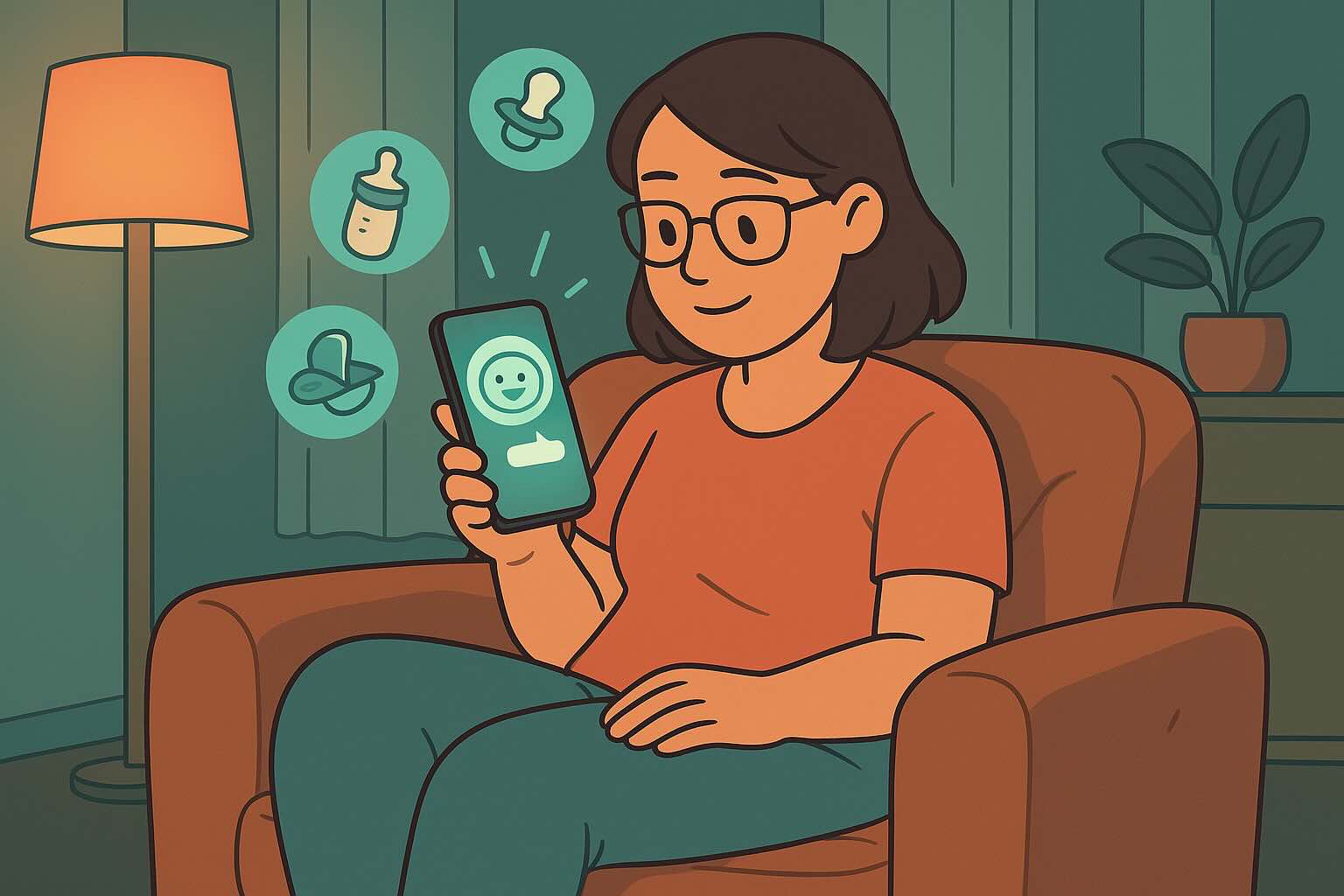
Expert Content Library
Access multimedia resources, articles, and expert-reviewed content organized by topics and your child's age.
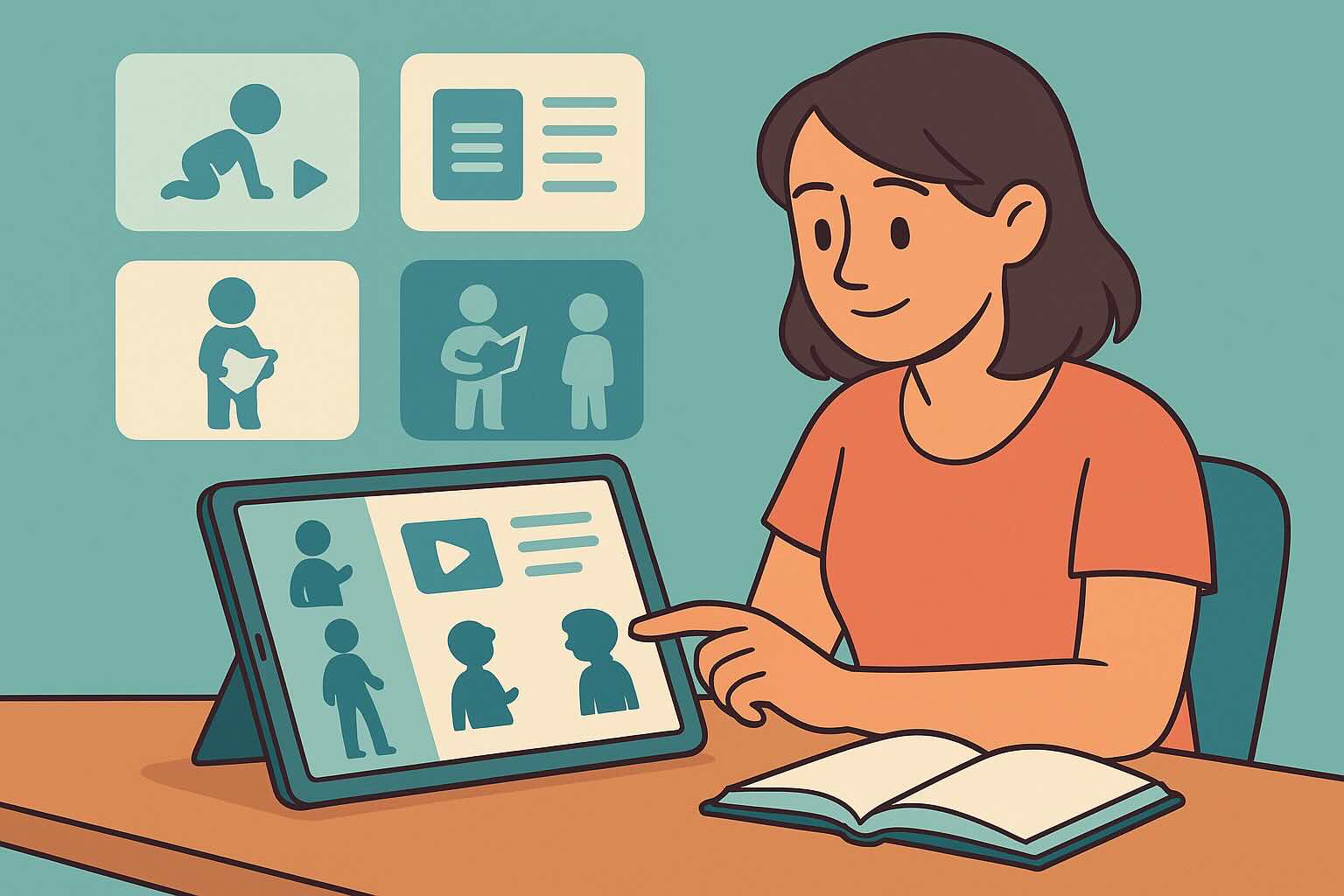
Get Your Free Sleep Training Toolkit
5-day email course + printable sleep log to help your baby sleep through the night
Frequently Asked Questions
Need personalized support?
RootWise's AI coach can provide tailored strategies for your specific situation, available 24/7 when you need it most.
Learn More About AI Coaching →